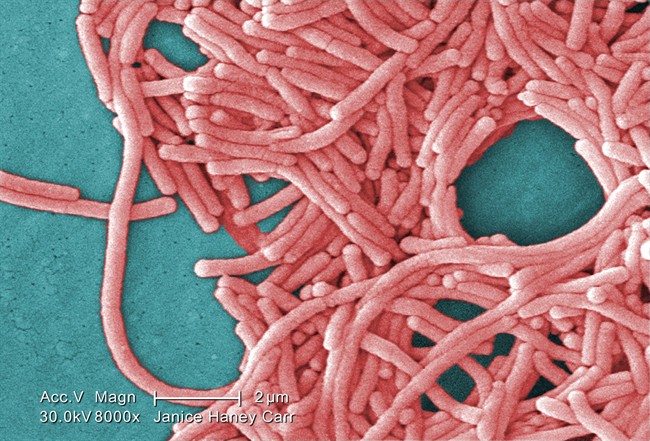Officials with the Middlesex London Health Unit (MLHU) have confirmed one person has died, after previously declaring a Legionnaires’ disease outbreak in the city.

Word of the outbreak came to light last week, as the health unit was first informed about the cluster of cases on July 24.
Since then, the health unit said on Friday that there have been 22 reported cases with six currently hospitalized.
“All identified cases were hospitalized at some point over the course of their illness,” MLHU wrote in a statement. “There has been one fatality.”
At this time, no details about the identity of the deceased have been released.
Health officials confirmed that most of the cases live and or work in a 5-km radius of one another in the southeast side of the city.
Legionnaires’ disease is a respiratory illness caused by a bacteria called Legionella, which is usually found in warm water sources such as hot water tanks and air-conditioning systems.
Symptoms include high fever, chills, a dry cough, shortness of breath and can lead to pneumonia.

MLHU associate medical officer of health, Dr. Joanne Kearon, confirmed to Global News this week that despite local case numbers, it does not pose a significant risk for the general public.

Get weekly health news
“It’s not very infectious at all; most people exposed will not develop any symptoms,” she said.
Legionella is not transmitted from person to person, through public waterworks, or through the consumption of contaminated foods, according to the health unit.
Most people who are exposed to the bacteria do not become ill or develop symptoms, but individuals who are older, have lung problems or are immunocompromised are at greater risk for infection.
“Middlesex-London Health Unit is working closely with Public Health Ontario and the Public Health Ontario Labs to identify the source of the outbreak so that it can be remediated,” the health unit continued.
“With many cooling towers and other types of cooling equipment in a region of this size, it will be a lengthy investigation.”
Officials added that it may take weeks before the source and cause of the outbreak is identified.
“We do not recommend any changes in behaviour or activities for individuals,” the health unit added.
MLHU is also asking all business owners and property managers to ensure “all cooling equipment is regularly maintained and sanitized as per the manufacturer’s instructions.”
More information about the disease can be found on the MLHU website.
— with files from Global News’ Emily Passfield.









Comments